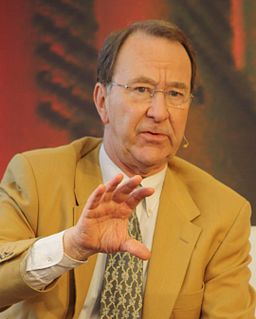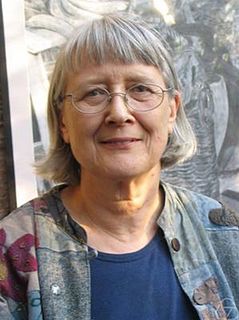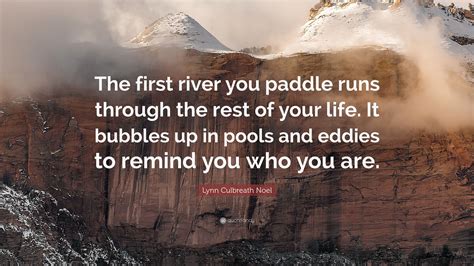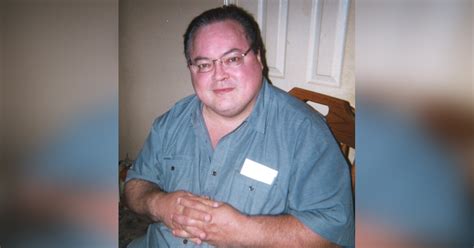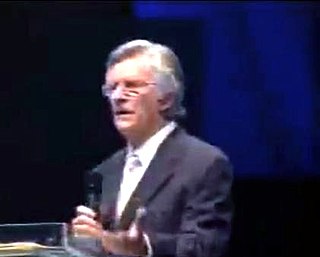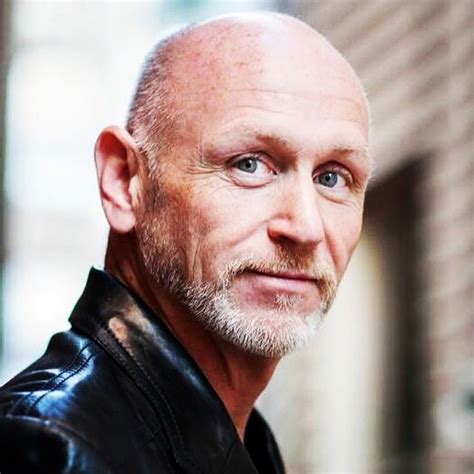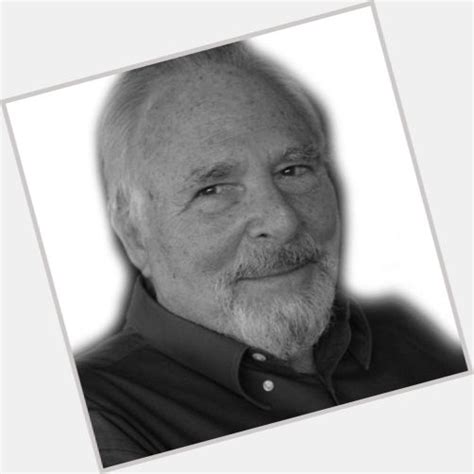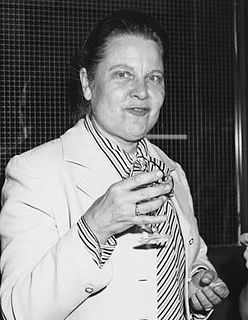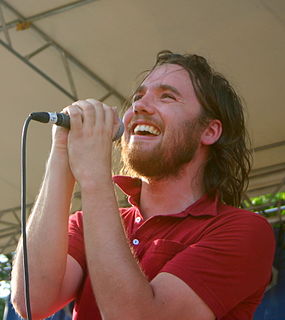Top 536 Beginnings Quotes & Sayings - Page 9
Explore popular Beginnings quotes.
Last updated on April 19, 2025.
Television always carried me: be it at my beginnings in small series and telefilms, or through my success in Kasamh Se and Bade Acche Lagte Hain. Thanks to TV, I saw an incredible dream come true: I could incarnate good and bad people, share my joys and pains with the audience, but also be part of this incredible medium that can educate and entertain at the same time! And with new TV platforms, the journey has only just started.
Paradoxically, I have found peace because I have always been dissatisfied. My moments of depression and despair turn out to be renewals, new beginnings. If I were once to settle down and be satisfied with the surface of life, with its divisions and its cliches, it would be time to call in the undertaker... So, then, this dissatisfaction which sometimes used to worry me and has certainly, I know, worried others, has helped me in fact to move freely and even gaily with the stream of life.
More than an end to war, we want an end to the beginnings of all wars. Yes, an end to this brutal, inhuman and thoroughly impractical method of settling the differences between Governments. The once powerful malignant Nazi state is crumbling; the Japanese warlords are receiving in their homelands the retribution for which they asked when they attacked Pearl Harbor. But the mere conquest of our enemies is not enough; we must go on to do all in our power to conquer the doubts and the fears, the ignorance and the greed, which made this horror possible.
Thou waitest for the spark from heaven! and we, Light half-believers of our casual creeds, Who never deeply felt, nor clearly will'd, Whose insight never has borne fruit in deeds, Whose vague resolves never have been fulfill'd; For whom each year we see Breeds new beginnings, disappointments new; Who hesitate and falter life away, And lose to-morrow the ground won to-day Ah! do not we, wanderer! await it too?
'Strive for peace with all men, and for the holiness without which no one will see the Lord' (Heb. 12:14), Why did he say 'strive'? Because it is not possible for us to become holy and to be saints in an hour! We must therefore progress from modest beginnings toward holiness and purity. Even were we to spend a thousand years in this life we should never perfectly attain it. Rather we must always struggle for it every day, as if mere beginners.
Within the Nazi Party, the beginnings of a personality cult around Hitler go back to the year before the [Munich] putsch... Outside these small groups of fanatical Bavarian Nazis, Hitler's image and reputation at this time - so far as the wider German public took any notice of him at all - was little more than that of a vulgar demagogue, capable of drumming up passionate opposition to the government among the Munich mob, but of little else.
The enemy often tries to make us attempt and start many projects so that we will be overwhelmed with too many tasks, and therefore achieve nothing and leave everything unfinished. Sometimes he even suggests the wish to undertake some excellent work that he foresees we will never accomplish. This is to distract us from the prosecution of some less excellent work that we would have easily completed. He does not care how many plans and beginnings we make, provided nothing is finished.
Perhaps some deep-rooted atavism urges the wanderer back to lands which his ancestors left in the dim beginnings of history. Sometimes a man hits upon a place to which he mysteriously feels that he belongs. Here is the home he sought, and he will settle amid scenes that he has never seen before, among men he has never known, as though they were familiar to him from his birth. Here at last he finds rest.
Gel'fand amazed me by talking of mathematics as though it were poetry. He once said about a long paper bristling with formulas that it contained the vague beginnings of an idea which could only hint at and which he had never managed to bring out more clearly. I had always thought of mathematics as being much more straightforward: a formula is a formula, and an algebra is an algebra, but Gel'fand found hedgehogs lurking in the rows of his spectral sequences!
As every flower fades and as all youth departs, so life at every stage, so every virtue, so our grasp of truth blooms in its day and may not last forever. Since life may summon us at every age, be ready, heart, for parting, new endeavour, be ready bravely and without remorse to find new light that old ties cannot give. In all beginnings dwells a magic force for guarding us and helping us to live.
For centuries the most powerful argument for God's existence from the physical world was the so-called argument from design: Living things are so beautiful and elegant and so apparently purposeful, they could only have been made by an intelligent designer. But [Charles] Darwin provided a simpler explanation. His way is a gradual, incremental improvement starting from very simple beginnings and working up step by tiny incremental step to more complexity, more elegance, more adaptive perfection.
We do not receive wisdom, we must discover it for ourselves, after a journey through the wilderness which no one else can make for us, which no one can spare us, for our wisdom is the point of view from which we come at last to regard the world. The lives that you admire, the attitudes that seem noble to you, have not been shaped by a paterfamilias or a schoolmaster, they have sprung from very different beginnings, having been influenced by evil or commonplace that prevailed round them. They represent a struggle and a victory.
Obviously, where art has it over life is in the matter of editing. Life can be seen to suffer from a drastic lack of editing. It stops too quick, or else it goes on too long. Worse, its pacing is erratic. Some chapters are little more than a few sentences in length, while others stretch into volumes. Life, for all its raw talent, has little sense of structure. It creates amazing textures, but it can't be counted on for snappy beginnings or good endings either. Indeed, in many cases no ending is provided at all.
Scientifically, I know beginnings don’t exist. The world is made of energy, which is neither created nor destroyed. Everything she is was here before me. Everything she was will remain. Her existence touches both my past and my future at one point—infinity. Lifelines aren’t lines at all. They’re more like circles. It’s safe to start anywhere and the story will curve its way back to the starting point. Eventually. In other words, it doesn’t matter where I begin. It doesn’t change the end.
["Where the Buffalo Roam" is] horrible pile of crap. [Bill] Murray did a good job. But it was a bad script. You can't beat a bad script. It was just a horrible movie. A cartoon. But Bill Murray did a good job. We actually wrote and shot several different endings and beginnings and they all got cut out in the end. It was disappointing.
I wanted to go higher than Rockefeller Center, which was being erected across the street from Saks Fifth Avenue and was going to cut off my view of the sky. . . . Flying got into my soul instantly but the answer as to why must be found somewhere back in the mystic maze of my birth and childhood and the circumstances of my earlier life. Whatever I am is elemental and the beginnings of it all have their roots in Sawdust Road. I might have been born in a hovel, but I determined to travel with the wind and stars.
Unicorns are not to be forgiven." The magician felt himself growing giddy with jealousy, not only of the touch but of something like a secret that was moving between Molly and the unicorn. "Unicorns are for beginnings," he said, "for innocence and purity, for newness. Unicorns are for young girls." Molly was stroking the unicorn's throat as timidly as though she were blind. She dried her grimy tears on the white mane. "You don't know much about unicorns," she said.
It's hard to see a river all at once, especially in the mountains. Down on the plains, rivers run in their course as straightforward as time, channeled toward the sea. But up in the headwaters, a river isn't a point where you stand. In the beginnings of the river, you teeter on the edge of a hundred tiny watersheds where one drop of water is always tipping the balance from one stream to another. History changes with each tiny event, shaping an outcome that we can only fully grasp in hindsight. And that view changes as we move farther downstream.
The Wheel of Time turns, and Ages come and pass, leaving memories that become legend. Legend fades to myth, and even myth is long forgotten when the Age that gave it birth comes again. In one Age, called the Third Age by some, an Age yet to come, an Age long past, a wind rose in the Mountains of Mist. The wind was not the beginning. There are neither beginnings nor endings to the turning of the Wheel of Time. But it was a beginning.
Our understanding of early Christian beginnings is usually monolithic. It is much determined by the Acts of the Apostles, which pictures a straightforward development from the primitive community in Jerusalem founded on Pentecost to the world-wide mission of Paul climaxing with his arrival in Rome, the political centre of the Greco-Roman world. The Pauline epistles are understood not so much as historical sources reflecting a much more multifaceted early Christian situation fraught with tensions but as theological treatises expounding and defending the doctrine of justification by faith.
Those who dismiss rappers as vulgar outsiders miss the way that Jay-Z and Kanye embody the American dream: starting from humble beginnings, both rose by dint of hard work and talent to wealth and success. Jay embraces this role, styling himself as much a CEO as an artist, and he and Beyoncé have become, in a significant way, more fully America's first couple than their friends the Obamas.
I would play all the parts of the song, show them the way it went together. Then I'd basically break down an arrangement - I wouldn't plan endings or beginnings - so they knew everything that was going on. I had the lyrics on a prompter so that I could remember everything I'd written, and I was able to just get into the groove and play with them. I think "Peace Trail" is one of the exceptions, where it's a later take. It just happened really quickly.
It is rarely remembered now that socialism in its beginnings was frankly authoritarian. It began quite openly as a reaction against the liberalism of the French Revolution. The French writers who laid its foundation had no doubt that their ideas could be put into practice only by a strong dictatorial government. The first of modern planners, Saint-Simon, predicted that those who did not obey his proposed planning boards would be 'treated as cattle'.
The great miraculous bell of translucent ice is suspended in mid-air. It rings to announce endings and beginnings. And it rings because there is fresh promise and wonder in the skies. Its clear tones resound in the placid silence of the winter day, and echo long into the silver-blue serenity of night. The bell can only be seen at the turning of the year, when the days wind down into nothing, and get ready to march out again. When you hear the bell, you feel a tug at your heart. It is your immortal inspiration.
What I tried to show is that this idea of this fundamental conflict between savagery and civilization goes back to the very beginnings of Western history. I go back to the Greeks, I go back to the Romans. You can read Homer. And of course Homer has his great heroes involved in this myth, this wonderful mythic contest with savage tribal peoples, half-human monsters on distant parts of the world.
Maybe nothingness is to be without your presence, without you moving, slicing the noon like a blue flower, without you walking later through the fog and the cobbles, without the light you carry in your hand, golden, which maybe others will not see, which maybe no one knew was growing like the red beginnings of a rose. In short, without your presence: without your coming suddenly, incitingly, to know my life, gust of a rosebush, wheat of wind: since then I am because you are, since then you are, I am, we are, and through love I will be, you will be, we will be.
You win over people just like you win over a dog. You see a dog passing down the street with an old bone in his mouth. You don't grab the bone from him and tell him it's not good for him. He'll growl at you. It's the only thing he has. But you throw a big fat lamb chop in front of him, and he's going to drop that bone and pick up the lamb chop, his tail wagging to beat the band. And you've got a friend. Instead of going around grabbing bones from people... I'm going to throw them some lamb chops. Something with real meat and life in it. I'm going to tell them about New Beginnings.
You go to a lot of small communities in rural Alberta and you'll find a degree of diversity that probably hasn't existed in terms of immigration for a century - you'll find the Filipino grocery store, and the African Pentecostal church and maybe a mosque. Albertans are pro-immigration; they're also pro-integration. In my years in this province I cannot recall more than a handful of expressions of xenophobia or nativism that I've encountered. It's the land of new beginnings and fresh starts - it is rare Albertans who trace their roots here back more than a generation or two.
Only part of us is sane: only part of us loves pleasure and the longer day of happiness, wants to live to our nineties and die in peace, in a house that we built, that shall shelter those who come after us. The other half of us is nearly mad. It prefers the disagreeable to the agreeable, loves pain and its darker night despair, and wants to die in a catastrophe that will set back life to its beginnings and leave nothing of our house save its blackened foundations.
Every ecosystem, even a small one, is sustainable because it has certain ensembles and conditions and influences that are unique to it. And the biological ensembles are almost certainly, even the most modest ones, in the thousands of species. We don't know what's involved in the models - not even the beginnings. And yet we're trying to make a sustainable world, which has to include the natural world. The human species is triumphant, but it's got to get a grip. It's got to come to understand what's happened, why we're this way and what we're doing.
Why does the longing for love have to be so acute, like a desperate thirst? Is it because love is wanting to be saved and we can never really be saved? Maybe love is really born of our fears. Love is the heart’s desire for a painkiller; a tearful plea for a great big epidural. Yes that’s it: love is the only anesthesia that really works. And so people with broken hearts are really those who are just coming to, and if you’ve ever seen someone come out of general anesthesia, you know that it looks a lot like the beginnings of a broken heart.
No one can lead a happy life, or even one that is bearable, without the pursuit of wisdom, and that the perfection of wisdom is what makes the happy life, although even the beginnings of wisdom make life bearable. Yet this conviction, clear as it is, needs to be strengthened and given deeper roots through daily reflection; making noble resolutions is not a important as keeping the resolutions you have made already.
Beware of compromises. I do not mean that you are to get into antagonism with anybody, but you have to hold on to your own principles in weal or woe and never adjust them to others' "fads" through the greed of getting supporters. Your Âtman is the support of the universe - whose support do you stand in need of? Wait with patience and love and strength; if helpers are not ready now, they will come in time. Why should we be in a hurry? The real working force of all great work is in its almost unperceived beginnings.
What do you know about yourself? What are your stories? The ones you tell yourself, and the ones told by others. All of us begin somewhere. Though I suppose the truth is that we begin more than once; we begin many times. Over and over, we start our own tales, compose our own stories, whether our lives are short or long. Until at last all our beginnings come down to just one end, and the tale of who we are is done.
In the last two years we've seen a sea change in the United States on media issues. Two years ago, people would have read this, then opened the window on the ledge of the 18th floor and jumped. They would have said, "Okay, it's over, there's nothing I can do, it's just getting worse." But in the last two years, what we've seen is that millions of Americans have gotten aware of the issue, they've organized on it, they've risen up, and we're seeing the beginnings of a burgeoning media reform movement across this country.
If the term education may be understood in so large a sense as to include all that belongs to the improvement of the mind, either by the acquisition of the knowledge of others or by increase of it through its own exertions, we learn by them what is the kind of education science offers to man. It teaches us to be neglectful of nothing - not to despise the small beginnings, for they precede of necessity all great things in the knowledge of science, either pure or applied.
Man is appealed to be guided in his acts, not merely by love, which is always personal, or at best tribal, but by his perception of his oneness with each human being. In the practice of mutual aid, which we can re-trace to the earliest beginnings of evolution, we thus find the positive and undoubted origin of our ethical conceptions; and we can affirm that in the ethical progress of man, mutual support- not mutual struggle- has had the leading part.
Sometimes the one who is running from the Life/Death/Life nature insists on thinking of love as a boon only. Yet love in its fullest form is a series of deaths and rebirths. We let go of one phase, one aspect of love, and enter another. Passion dies and is brought back. Pain is chased away and surfaces another time. To love means to embrace and at the same time to withstand many endings, and many many beginnings- all in the same relationship.
... Grief is selfish. It is indulged in for self-gratification, not for love. Cosmic man knows the beauty and unreality of death. Sympathy for the afflicted makes a reality of the affliction by its recognition as an infliction, while sorrow for the loss of anything, or for the »unfortunate« condition of anybody, is forgetful of the beauty and abundance of all-giving God and Nature. The Mind of God knows but one unchanging emotion - ECSTASY - the ecstasy of Love - the ecstasy which has its beginnings in an inner joyousness of one who is far on the road to the discovery of his immortal Self.
The struggle to emerge out of the past, clean of memories; the inadequacy of our hearts to cut life into separate and final portions; the pain of this constant ambivalence and interrelation of emotions; the hunger for frontiers against which we might learn as upon closed doors before we proceed forward; the struggle against diffusion, new beginnings, against finality in acts without finality or end, in our cursedly repercussive being.
We have the beginnings of feminism starting to rear its head, where all of that got blown up. The whole point of going to college became not to find a husband - screw that! - feminism became, "You don't want anything about a man to be defining you, and you don't want your relationship to define, you! You don't want a relationship to be your happiness. You certainly don't want marriage to be the sole determining reason you live".
Hermes rolled his eyes. "Surely you've seen network TV lately. It's clear they don't know whether they're coming or going. That's because Janus is in charge of programming. He loves ordering new shows and cancelling them after two episodes. God of beginnings and endings, after all. Anyway, I was bringing him some magic doormats, and I was double-parked -" "You have to worry about double-parking?" "Will you let me tell the story?" "Sorry."
What ignited the rocket that sent you up into the vast regions of comedy, and why? I would say, for me, that philosophical treatise about having black beginnings and wanting love to compensate for that, wanting audiences and wanting attention - I say, "Au contraire." Completely opposite. I want the continuation of my mother's incredible love and attention to me.
A great deal has been said about love at first sight; I am perfectly aware of love's retrospective tendency to make a legend of itself, turn its beginnings into myth; so I don't want to assert that it was love; but I have no doubt there was a kind of clairvoyance at work: I immediately felt, sensed, grasped the essence of Lucie's being or, to be more precise, the essence of what she was later to become for me; Lucie had revealed herself to me the way religious truth reveals itself.
The idea of hunting and gathering as the best way for life has become quite popular recently, much more populare in some circles than the idea of simple farming as the best way of life. Many of the new primitives regard the beginnings of agriculture as one of humanity's major steps in the wrong direction. Most of the people who are drawn to such ideas do their actual hunting and gathering in grocery stores, but the *feeling* is there; it takes the form of a religion...expressed by particpating in American Indian rituals - or primitive-style rituals that are created anew.
I will write in words of fire. I will write them on your skin. I will write about desire. Write beginnings, write of sin. You’re the book I love the best, your skin only holds my truth, you will be a palimpsest lines of age rewriting youth. You will not burn upon the pyre. Or be buried on the shelf. You’re my letter to desire: And you’ll never read yourself. I will trace each word and comma As the final dusk descends, You’re my tale of dreams and drama, Let us find out how it ends.
Asian Homo erectus died without issue and does not enter our immediate ancestry (for we evolved from African populations); Neanderthal people were collateral cousins, perhaps already living in Europe while we emerged in Africa... In other words, we are an improbable and fragile entity, fortunately successful after precarious beginnings as a small population in Africa, not the predictable end result of a global tendency. We are a thing, an item of history, not an embodiment of general principles.
All I wanted was to live a life where I could be me, and be okay with that. I had no need for material possessions, money or even close friends with me on my journey. I never understood people very well anyway, and they never seemed to understand me very well either. All I wanted was my art and the chance to be the creator of my own world, my own reality. I wanted the open road and new beginnings every day.
If God made no response except to perfect faith, who could hope for help? But God has regard for beginnings, and His eye perceives greatness in the germ. The hand of the woman in the crowd trembled as it was stretched toward Jesus, and the faith back of it was superstitiously reverent, trusting in the virtue of the robe, rather than in the One who wore it; yet the genuineness of that faith; feeble though it was, triumphed in God's loving sight. Real trust is real power, though the heart and hand be feeble.
I try to structure albums in a pattern, like in a way where there's a motif that runs throughout or some kind of conceit that informs it in a general way. Maybe it's in a harmonic key. I like to go metastructural sometimes, like look at more than the three-minute passage and how that interacts with other pieces. And I've been increasingly interested in false starts and fraudulent beginnings, and things that don't reach their implied conclusions. I take an album and I kind of start moving things around like Jenga.
The same authorities who insist upon beginnings, middles, and ends, declare that Great Literature (by which they mean the stories they have been taught to admire) is about love and death, while mere popular fiction like this is about sex and violence. One reader's sex, alas, is another's love; and one's violence, another's death.
What inspires me is anxiety and the quest to try to change things in my life. ...I got addicted to endings and beginnings and to the idea of always moving around. ...Obviously, whenever you're going through something that's the best time to create, if you're going through something amazing, or horrible, or nothing at all you should be creating. Unfortunately the songwriters of today generally torture themselves to make sure they're writing good songs and take it a little too seriously.
In the world outside this glass room, songbirds are feeding and resting in the trees. Some will take off tonight and not land until they reach Venezuela. Sandpipers, plovers, and broad-winged hawks have already left for Patagonia and Panama. Bats are headed for caves in Kentucky and Tennessee. Out in the Atlantic, humpback whales pass by on their way to the Caribbean. Even now, Canada geese are honking toward us from Quebec. It is a good day for the beginnings of journeys.Every time I look at you, I think, Now I cannot die.
We may... have to relinquish the notion, explicit or implicit, that changes of paradigm carry scientists and those who learn from them closer and closer to the truth... The developmental process described in this essay has been a process of evolution from primitive beginnings-a process whose successive stages are characterized by an increasingly detailed and refined understanding of nature. But nothing that has been or will be said makes it a process of evolution toward anything.
Another point important to recognize is that the creation was 'mature' from its birth. It did not have to grow or develop from simple beginnings. God formed it full-grown in every respect, including even Adam and Eve as mature individuals when they were first formed. The whole universe had an 'appearance of age' right from the start. It could not have been otherwise for true creation to have taken place. 'Thus the heavens and the earth were finished, and all the host of them' (Genesis 2:1).





